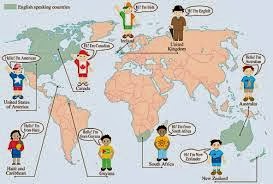RELATIVE CLAUSES
- A relative clause is a
subordinate sentence which functions like an adjective, that is, it
modifies a noun usually, and it can also modify a complete sentence.
- It always comes immediately after the noun or sentence it modifies.
- A relative clause is always introduced by a relative pronoun. This
pronoun can sometimes be omitted.
- As it is a complete sentence, it has the same parts as a sentence: relative pronoun + subject + verb + objects + adverbials
- The relative pronoun has a function in the sentence; it can be the
subject, the direct object, the indirect object or the adverbial.
DEFINING
RELATIVE CLAUSES
When the relative
pronoun functions as the object, it can be omitted.
E.g.: I hate neighbours who make a
lot of noise.
The man ( whom ) you met yesterday is my
uncle.
Is that the film which won 7 Oscars ?
That’s the company ( which ) I work for.
NON-DEFINING RELATIVE CLAUSES
- The pronoun THAT can never be used.
- Commas are used to separate the main clause from the relative
clause.
- The pronoun can never be omitted.
E.g.: My mother, who is 65, has just retired.
Mrs Black, whose daughter goes to my school,
has just won the lottery.
Peter,
whom you have never met, is my brother.
Rewrite
these pairs of sentences by means of a relative pronoun in order to make a
relative clause. If the pronoun can be omitted, put it between brackets:
1-
This is the student. She came top in the exam.
2-
Chris is my best friend. I’ve known him for a long time.
3-
I picked up the money. It was lying on the floor.
4-
My grandparents still live in the village. I was born there.
5-
Mr Bentley is away from school now. His wife is having a baby.
6-
The café is open all night. We had lunch there.
7-
Caroline is staying with me. She is my best friend.
8-
What’s the name of the man? You are getting married to him.
9-
Is this the house? You were born in it.
10-
The firm is sending him to New York. He works for this firm.
(The firm …)
11-
John is Mary’s husband. I met John in town yesterday.
13-
The man was badly injured. He was driving the car.
14-
The woman was very polite. I spoke to her yesterday.
15-
I’d love to visit Australia. I went there for the first time in 1987.
16-
Have you got the money? I lent it to you last week.
17-
She came to my house last month. I met her then.
18-
My mother looked surprised. She hadn’t been expecting visitors.
19-
Those are the children. Their mother took them to the park.
20-
I saw Alan in town yesterday. You have just met his father.
21-
The bed was uncomfortable. I was sleeping on that bed.






Comentarios